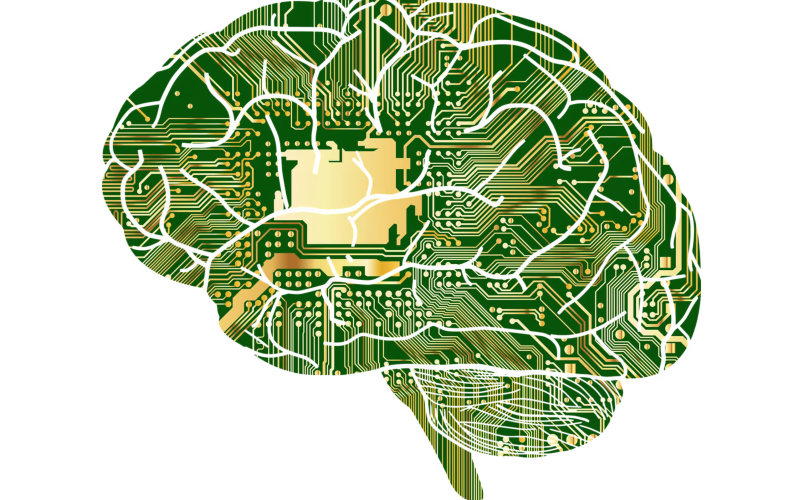by Carl R. Tannenbaum, Chief Economist, Northern Trust
Artificial intelligence will reshape how a lot of work gets done.
One of the questions we get often during client meetings is whether globalization is in retreat. I decided to do some research into the topic.
The trend towards globalization, which refers to the interconnectedness of economies, cultures, and societies across borders, has been in place for several decades. Globalization has been driven by various factors such as advancements in technology, transportation and communication, as well as policies promoting trade and investment.
However, globalization has faced challenges and setbacks in recent years. One notable example is the rise of protectionist policies and nationalist movements in various parts of the world, which have led to trade barriers, immigration restrictions and a more inward-looking approach to economic and social issues. The COVID-19 pandemic has also disrupted global supply chains and travel, highlighting the vulnerabilities of a highly interconnected world.
Nonetheless, it is worth noting that globalization is a complex and multifaceted phenomenon that cannot be reduced to a single trend or direction. It is also subject to cyclical changes and adaptations, as well as different perspectives and interpretations. Some experts argue that globalization is evolving rather than declining, and that new forms of global integration and cooperation may emerge in the future.
The preceding three paragraphs were prepared in just 10 seconds by ChatGPT, the online platform that has become a sensation among users and investors. To some, it is a tool that has immense potential to transform the economy; to others, it is a scourge which will spread misinformation and cost jobs. The truth, I found, lies somewhere in the middle.

Computers have been able to generate conversation for quite a while now. Chat bots handle a lot of customer service inquiries, and voice assistants like Alexa and Siri answer when we call. Type-ahead features on smart phones adapt to our modes of expression and speed the construction of messages.
Generative artificial intelligence (AI) has taken these endeavors to a whole new level. AI platforms can acquire information and synthesize language structure across an immense range of sources. When a query is posed, a response is provided in familiar syntax. This process applies not only to traditional languages, but to programming languages as well; applications like ChatGPT can write effective code.
Open AI has its flaws, and struggles with capacity. But time will solve both problems.
One can ask to have an answer delivered in the voice of a particular writer. The result can be humorous: instructions for repairing a car in the style of the King James Bible, for example. But the ability of the machine to sound like someone in particular raises concerns about identity and originality.
ChatGPT has been assembled in an open-source manner, meaning that multiple programmers can contribute. This has accelerated improvements in capability and quality. Further, the code has the ability to learn as it goes along. Some responses generated by the platform stretch the truth, or are just plain wrong. But they are getting better and better.
Aside from potential inaccuracies, generative AI routines are computationally intensive. This can sometimes mean waiting for quite a while to access ChatGPT. Using these tools in commercial settings will require substantial improvements in chip speeds and system architecture. Given the pace of past improvements, however, this constraint should ease over time.
ChatGPT is also limited in the sense that it can only “train” on information that is generally available. Lots of information that might be germane to a query is nonpublic, and some of the public information is not reliable. Again, though, access to information is likely to expand in the years ahead, and AI will become better and better at telling truth from fiction.

The list of potential business applications for ChatGPT and its cousins is long and varied, from drafting legal documents to programming and detecting anomalies in business processes. It even has the potential to do more creative work, like composing marketing copy, art, music and video content. The application of AI will certainly disrupt these segments of the labor market.
The technology may also disrupt whole industries. Providers of search engines, in particular, are following developments closely; some are coming out with ChatGPT clones of their own to maintain primacy with users looking for information.
ChatGPT is creating disruption within the educational system already, as students are using it to complete assignments. Teachers are angry, preferring that students learn to research and write the old-fashioned way. But future generations may not need to know how to assemble and summarize basic facts. (I am reminded of how furious my teachers were when the first hand-held calculators came out, and how archaic that thinking seems today.) Educational curricula may be inexorably altered as the bots advance.
The transition to broader application of AI will be bumpy.
Generative AI promises to have the same kind of broad economic impact as past technological revolutions. It will raise productivity, and free workers to focus on higher-order tasks. As an analog, optimists point to the automation of factories, whose output is higher than ever even though employment is about the same as it was seventy years ago.
For societies with disadvantageous demographics, this kind of innovation should be welcomed, but some within those societies may lose opportunities. There is little doubt that regulation and legislation will have something to say about how the evolution takes place, and where. The transition promises to be bumpy.
I am just hoping to hold on for another few years before ChatGPT makes me obsolete. When I asked the platform about me, it responded that I “was the former chief economist at Northern Trust.” Who knows, maybe it has the ability to peer into the future…hopefully, the distant future.
*****
 Carl R. Tannenbaum
Carl R. Tannenbaum
Executive Vice President and Chief Economist
Carl Tannenbaum is the Chief Economist for Northern Trust. In this role, he briefs clients and colleagues on the economy and business conditions, prepares the bank's official economic outlook and participates in forecast surveys. He is a member of Northern Trust's investment policy committee, its capital committee, and its asset/liability management committee.














